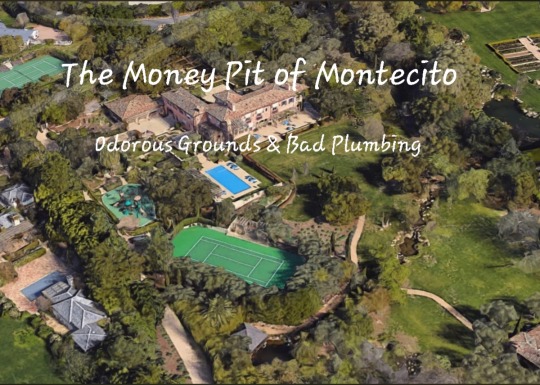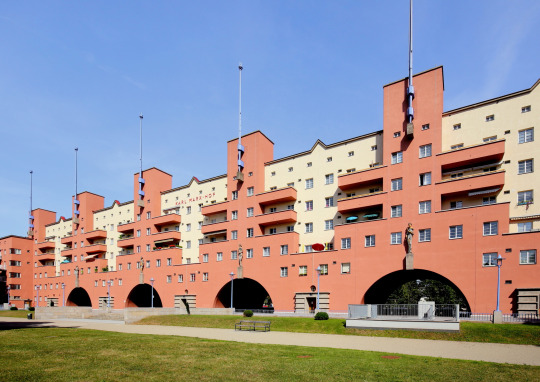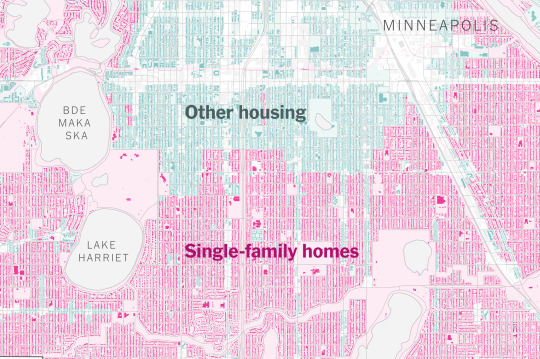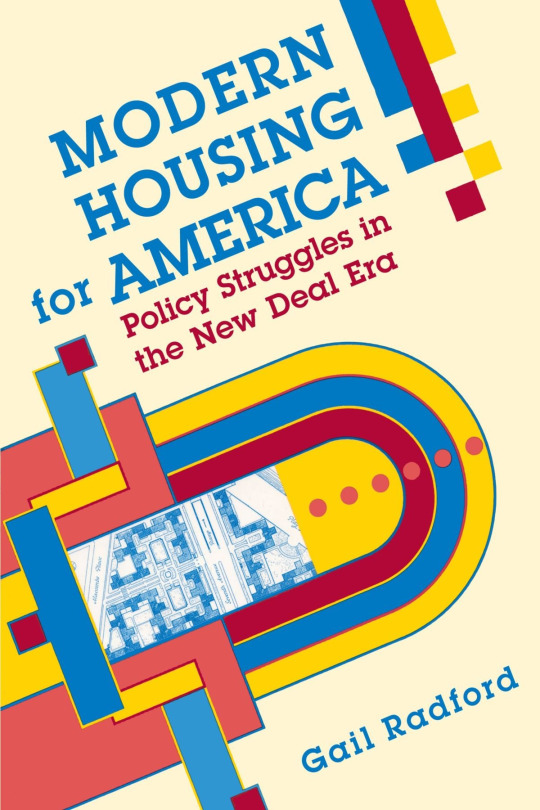#nimbie
Text


Traditional doodles of Norman, Minerva and Nimbie!! Minerva and Nimbie are dressed in silly witch outfits but with completely different themes in mind.
+ silly doodle of hexlynn

#VNA#zitradoodle#traditional#minerva#nimbie#norman#hexlynn#i love them so much honestsly#Love them so much i cant even spell ^#anyway im excitedddd#maybe wife should post chapters online for funsies …#doodle#sketch#illustration
9 notes
·
View notes
Text

I started playing Stardew Valley and accidentally fell in love
#stardew valley#sdv shane#im not great at digital art just yet but im proud of how it came out!! i love chicken man#nimbys art
3K notes
·
View notes
Note
What kind of signature move does Tsuneon has?
I never created a signature move for Tsuneon, but since they're based on kitsune, maybe something like "Fox Fire," a fire-type attack that causes confusion.
I'd love to hear if anyone has ideas :)
#IPPasks#dual types#tsuneon#nimby-the-deadly-nadder-9977#I'm sure there could be a cooler name for it too
25 notes
·
View notes
Note
Re zoning regulation reform: could you go into detail as what that would look like in terms of wiping the slate clean. I feel like it would be better to go the houston route and just be zoning free
You do not want to go the Houston route.
youtube
Houston may claim to be "zoning-free" - and to be fair, it doesn't have some of the more common regulations on land use, or density, or height restrictions (more on this in a minute) - but the reality is far more complicated and the status quo is not one that's friendly to the interests of working-class and poor residents, or to the possibility of sustainable urbanism.
The answer to NIMBYism isn't to abolish all regulations and let the free market rip, it's to surgically target zoning, planning, and litigation that is used against affordable housing, public/social housing, mass transit, clean energy, and walkable neighborhoods, and to replace it with new forms of regulation that encourage these forms of development.
So let's take take these categories in order.
Zoning
As I tell my Urban Studies students, zoning is both one of the most subtle and yet comprehensive ways in which the state shapes the urban environment - but historically it has been used almost exclusively in the interests of racism and classism. Reforming zoning requires going over the code with a fine-toothed comb to single out all the many ways in which zoning is used to make affordable housing impossible:
The most important one to tackle first is density zoning and building heights limitations. The former directly limits how many buildings you can have per unit of land (usually per acre), while the latter limits how big the buildings can be (expressed either as the number of stories or the number of feet, or as both). Closely associated with these zoning regulations are minimum lot size regulations (which regulate how much land each individual parcel of real estate has to cover, and thus how many how many housing units can be built in a given area), and lot coverage, setbacks, and minimum yard requirements (which limit how much square footage of a lot can be built on, and what kinds of structures you can build).
the other big one is use zoning. To begin with, we need to phase out "single use" zoning that designates certain areas as exclusively residential or commercial or industrial (a major factor that drives car-centric development, makes walkable neighborhoods impossible, and discourages the "insula" style apartment building that has been the core of urbanism since Ancient Rome) in favor of "mixed use" zoning that allows for neighborhoods that combine residential and commercial uses. Equally importantly, we need to eliminate single-family zoning and adopt zoning rules that allow for a mix of different kinds of housing (ADUs, duplexes and triplexes, rowhouses/terraced houses, apartment buildings).
finally, the most insidious zoning requirements are seemingly incidental regulations. For example, mandatory parking minimums not only prioitize car-dependent versus transit-oriented development but also eat up huge amounts of space per lot. The most nakedly classist is "unrelated persons" zoning, which is used to prevent poorer people from subdividing houses into apartments, which zaps young people who are looking to be roommates and older people looking to finance their retirements by running boarding houses or taking in lodgers, as well as landlords looking to convert houses from owner-occupied to rental properties.
So I would argue that the goal of reform should be not to eliminate zoning, but rather to establish model zoning codes that have been stripped of the historical legacies of racism and classism.
Planning
Similar to how zoning shouldn't be abolished but reformed, the correct approach to planning isn't to abolish planning departments wholesale, but to streamline the planning process - because the problem is that right now the planning process is too slow, which raises the costs of all kinds of development (we're focusing on housing right now, but the same holds true for clean energy projects), and it allows NIMBY groups to abuse the public hearings and environmental review process to block projects that are good for the environment and working-class and poor people but bad for affluent homeowners.
As those Ezra Klein interviews indicate, this is beginning to change due to a combination of reforms at both the state and federal level to speed up the CEQA and EPA environmental review process in a number of ways. For example, one change that's being made is to require planning agencies and environmental agencies to report on the environmental impact of not doing a project as well, to shift the discussion away from petty complaints about noise and traffic and "neighborhood character" (i.e, coded racism and classism) and towards real discussions of social and environmental justice.
At the same time, more is needed - especially to reform the public hearing process. While originally intended by Jane Jacobs and other activists in the 1970s as a democratic reform that would give local communities a voice in the planning process, "participatory planning" has become a way for special interests to exercise an unaccountable veto power over development. Because younger, poorer and more working class, and communities of color often don't have time to attend public hearing sessions during the workday, these meetings become dominated by older, whiter, and richer residents who claim to speak for the whole of the community.
Moreover, because community boards are appointed rather than elected and public hearings operate on a first-come-first-serve basis, an unrepresentative minority can create a false impression of community opposition by "stacking the mike" and dialing up their level of militancy and aggression in the face of elected officials and civil servants who want to avoid controversy. (It's a classic case of diffuse versus concentrated interests, something that I spend a lot of classroom time making sure that my students learn.)
Again, the point shouldn't be to eliminate public hearings and other forms of participatory planning, but to reform them so that they're more representative (shifting public hearings to weekends and allowing people to comment via Zoom and other online forums, conducting surveys of community opinion, using a progressive stack and requiring equal time between pro and anti speakers, etc.) and to streamline the review process for model projects in categories like affordable housing, clean energy, mass transit, etc.
Litigation
Alongside the main planning process, there is also a need to reform the litigation process around development. In addition to traditional tort lawsuits from property owners claiming damage to their property from development, a lot of planning and environemntal legislation allows for private groups to sue over a host of issues - whether the agency followed the correct procedures, whether it took into account concerns about this impact or that impact, and so forth.
As we saw with the case of Berkeley NIMBYs who used CEQA to block student housing projects over environmental impacts around "noise," this process can be used to either block projects outright, or even if the NIMBYs eventually lose in court, to draw out the process until projects fall apart due to lack of funding or the proponents simply lose their patience and give up.
This is why we're starting to see significant reforms to both state and federal legislation to streamline the litigation process. The categorical exemptions from review that I discussed above also have implications for litigation - you can't sue over reviews that didn't happen - but there are also efforts to speed up the litigation process through reducing what counts as "administrative record" or by putting a nine-month cap on court proceedings.
Again, this is an area where you have to be very surgical in your changes. Especially when the politics of the issue divide environmental groups and create odd coalitions between labor, business, climate change activists, and anti-regulation conservatives, you have to be careful that the changes you are making benefit affordable housing, clean energy, mass transit and the like, not oil pipelines and suburban sprawl.
#public policy#housing#zoning#policy history#urban planning#public housing#social housing#yimbys#yimbyism#affordable housing#urban studies#urbanism#houston#nimbyism#nimbys#environment#climate change#clean energy
93 notes
·
View notes
Text
There are cruel and unjust things in this world but I will not allow them in my home.
By Home I mean everything btw, I mean my house I mean my workplace, my community, my neighborhood. If I see an act of cruelty anywhere near me, Im going to end it right where it was done.
153 notes
·
View notes
Text
The Stench is REAL: Rotten Eggs + Reeking Weed Factory+ Bad Pipes = "It smells. Bad. VERY bad. VERY VERY bad."

The irony of bridezlla Rachel MEgain Markle kicking up a fuss over a one (1) hour "spectacle" inside the Queen’s "musty" chapel, only to acquire a 1st homebuyer loan for an odorous property.
"It smells like offal that has been rotting in the sun. It makes my stomach churn," a local from the Montecito area reportedly told The Mirror. "I’ve seen lots of homeowners closing their windows when it wafts over."
"According to the New York Post, the smell is wafting over from a nearby bird refuge (which is situated on a 42-acre stretch of saltwater marsh). Specifically, the refuge is the Andrée Clark Bird Refuge, which happens to be one of the largest wildlife refuges in the U.S. Cameron Benson, the City of Santa Barbara's clean water manager, told the Mirror that stagnant water can contribute to the smell, and that the “odor issues are sporadic and sometimes they are worse in some conditions."
"Last year, it was reported the Duke and Duchess of Sussex live just minutes from a legal weed factory base in Santa Barbara, California.
The couple's mansion is just up the road from the 20 large greenhouses full of the plants - leaving the luxury suburb reeking.
Neighbours made a string of complaints, sparking the company to install new “odour control systems”.
The Meghans, Dorito & Markus can get high just by standing outdoors as "...one resident complained that the stench was so bad that they had to pull over while driving along the road."
Imagine taking out a $14.65 million dollar loan on your VERY first home: a 9 bedroom, 16 bathroom mansion and you are CanNOT use your property for business purposes. No Spotify podcasts, NO staged Megflix/Netflix zoom calls, NO staged juggling acts outside the windows, NO book interviews, NO staged instant messages from Beyonce, NO Easter egg hunts, NO cooking shows, NO Variety photo shoots---- only 1 chicken coop interview with NOprah.


The 14,500sq ft, or 1,350sq m, main house sits on 7.4ac of grounds that include a pool, tennis court, tea house and children's cottage.
Money Pit : "The pair have paid a lot less for the property than a previous owner: in May 2009 it sold for more than $25 million. It was put on the market in 2015 for $34.5 million but failed to sell. It was relisted at the start of this year for $16.975 million, selling to the Sussexes for $2.325 million less than the asking price at $14.65 million."



From asks @the-cat-with-the-emerald-tiara-1 Royal Organic Weed "Harry's Choice"

Poll Error: The 4th answer "Money Pit of Montecito"

#The Stench#Environmentally Conscious#save the planet#NIMBY#megxit#Montecito Weed Factory#Montecito Rotten Eggs#Plumbling Issues#Bad Pipes#the invisibles#odor control systems#jam scam#scam jam#money pit#Royal Organic Weed#my polls
14 notes
·
View notes
Text
So I'm getting brainworms over replacing my car, since (autistic anthropomorphizing of my old car, which will obviously miss me and be sad that I abandoned it, and) I'm buying it cash because I have the money, and if I have that money why haven't I given it to charity? I should need to get a loan and pay in installments like normal, good people who don't let their money sit around.
And THEN I started to go "that sounds like scrupulosity per @scrupulosity-comics," but that sets off "now I'm a bad person for appropriating scrupulosity when I'm not diagnosed with it!!!"
#brainworms#absolutely what the fuck just let me live#this is only partly serious#I mean I can tell it's irrational and it's not controlling my life#I am getting the Bolt regardless of Brother Bart#it's just tiring#see also: last month when I thought I was a NIMBY for having any negative opinion on drug stuff happening next door#it me
18 notes
·
View notes
Text
Poverty is a policy choice
The Atlantic has an unflinching look at how the US is such a bad actor when it comes to poverty, especially child poverty, compared to the rest of the developed world. President Biden's Extended Child Tax Credit passed in his first year in office lifted 40% of the families living in poverty out of poverty, a stunning result achieved at a relatively small cost. The Republicans killed it.
There are tremendous knock-on benefits to lifting people out of poverty - healthcare costs go down, crime goes down, tax bases are widened, welfare rolls are reduced, productivity goes up. All these are well known. So why does America fall so short? Here are a few points from the article to consider:
Housing is typically the largest expense for a household. “Municipal zoning ordinances, enacted through referenda pushed by citizens’ groups and homeowners’ associations, and which prohibit the construction of multifamily apartment complexes in upscale neighborhoods, is a case in point. These benign-sounding rules foster segregation, effectively preventing the poor ... from moving in. Such policies are one of the few issues that Americans in red and blue states seem to agree on."
So yes, the NIMBY effect of the 'rich' forces the poor to live out of sight, unable to benefit from the schools, parks, and appreciation in property values enjoyed by the wealthy.
The financial structure favours the wealthy in a variety of ways. "When the wealthy patronize shops and restaurants that offer low prices and fast service, their satisfaction comes at the expense of cashiers and dishwashers paid poverty wages. When we open free checking accounts that require maintaining a minimum balance, we benefit from the fact that banks can collect billions of dollars in overdraft fees from poor customers who struggle to meet these requirements—and who often end up gouged by check-cashing outlets and payday lenders."
The notion that the government subsidizes the poor while taxing the rich does not take into consideration the massive tax benefits homeowners have with the mortgage interest deduction and state and local tax write-offs. Indeed, "the average household in the top 20 percent income bracket receives $35,363 in annual tax breaks and other government benefits—40 percent more than the average household in the bottom 20 percent."
"What is “maddening,” Desmond writes, is “how utterly easy it is to find enough money to defeat poverty by closing nonsensical tax loopholes,” or by doing 20 or 30 smaller things to curtail just some of the subsidies of affluence."
His bleak conclusion:
"Getting affluent people to engage in rhetorical hand-wringing over inequality is easy enough. Persuading them to yield some of their entitlements is a lot harder."
122 notes
·
View notes
Text
"In a midnight operation, hundreds of police officers descended on People’s Park in Berkeley, California, to clear out the activists and unhoused campers occupying the area, to make way for the construction of a housing complex for students.
By dawn, the park that was once the centre of the 1960s antiwar and counterculture movement was walled off with shipping containers and surrounded by police."
#berkeley#uc berkeley#guess i won't be making any alumni donations for the foreseeable future 🤷♀️#the most nimby ass town i ever lived in i swear#do i have a tag for the sf bay area and it's deep and abiding hatred for poor people?#its*
18 notes
·
View notes
Text
"gotham is soooo dirty team metropolis!" average closet space in metropolis costs 4000 dollars a month. there are three buses. they destroyed the historic Iridium theatre to make space for another highway. if u try to sell street food a police officer in a tank will run u over. HOAs have hired deathstroke to murder people trying to build low cost apartments in the neighbourhood. superman commutes from the arctic. if u play music after 6 pm lex luthor's bots will shoot you in the head.
#gotham#metropolis#im sorry metropolis is LITERALLY hell lmao. NIMBY hell suburban sprawl car centric ugly ass city.
48 notes
·
View notes
Text
The Plutocratic Fallacy
Rich assholes would love for you to believe that anything that is good for them is definitionally good for the economy. This is not true, in case you were wondering. Rent seekers gonna rent seek.
After a lifetime of hearing this line, many people are understandably skeptical of rhetoric that something is "good for the economy", since that often is just a euphemism for "good for jet ski dealership owners and/or billionaires".
Perversely, this has led some lefty folks to argue that all sorts of policies that are objectively economically bad must actually be economically good, since in their minds "good for the economy" = "good for rich assholes" = "bad".
This is both a tactical and substantive mistake. If you manage to convince normies that a particular policy is bad for the economy (which in your clique may mean 'good for humanity'), you have actually just convinced them that it is bad, full stop. If you manage to convince normies that something is good for the economy (which to you means 'horrible and bad'), all you've done is convince them that it's good, full stop. Stop shooting yourself in the dick please.
Also, like, the economy is good. Producing goods and services is good. The means of fucking production? You're supposed to want to seize them, for christ sake. This seems like such an easy mistake to avoid making if you're a leftist. "Rich people are selfishly pursuing policies that benefit them but are disastrous in aggregate" is a Marxist slam dunk.
#degrowthers#nimbys#those weirdos hellbent on proving that slavery was the optimal economic system (since that means 'bad' to them)#stop making things worse#no one who votes thinks 'good for the economy' is a bad thing#so please stop trying to convince everyone that good things are bad#economics#the discourse tm
242 notes
·
View notes
Text

silly goof
#zitradoodle#Nimbie#VNA#my wife is writing a halloween party in the story so i drew him in the outfit :3
1 note
·
View note
Text



quality time w the wife 🎮😴🌙❤️✨
#please i overshaded the top picture but it was my first time doing painterly shading i just love them so fucking much 👊😔👋😔#sdv shane#sdv farmer#stardew farmer#stardew valley#farmer willa#sappy cuddly husband shane is my lifeblood#nimby's art
1K notes
·
View notes
Text
Twelve hour workday on four hours of sleep

#i cannot stress enough how boring community board meetings are it’s the worst part of my job#what is the benefit of me listening to wealthy nimbys share 5G conspiracy theories#parks and rec was a documentary#i’m gwen and i approve this message
19 notes
·
View notes
Note
I'm a big fan of building commie blocks to ameliorate the US housing crisis -- and putting them in the public parks that were stolen from other communities to give colonisers some trees to look at -- but what policies should be enacted to get suburbanites into beautiful and efficient bedspace apartments with kitchens and washrooms shared by a floor?
As a good social democrat, I'm contractually obligated to prefer Red Vienna to your proper commie block. Short of a complete class revolution that completely upends the social hierarchy, a significant part of ensuring that social housing pulls off being "a living tapestry of a mixed community" is building it to middle-class standards (including aesthetic standards) so that people with the money to find alternatives don't all leave. Art Deco is a hell of a lot chic-er than the boring minimalist crap that luxury developers are getting away with these days.

Also, don't build them in parks: green space is not only important for environmental sustainability but also the health and mental health of working-class and poor communities who can't afford houses in the suburbs, and we should be encouraging in-fill development instead. (Build them on golf courses instead, because they are classist, invasive, artificial monocultures that do nothing for the environment.)
In terms of how to make suburbia more in synch with dense, sustainable social housing, there are a number of necessary changes:

Commuter rail: suburbs predate the car by a fair few decades, and originally sprung up along the routes of commuter rail lines. Well, it turns out that transit-oriented development and dense transit corridors go hand-in-hand: if you can build higher-density units near transit lines, people will use mass transit to commute, and if there are well-planned areas of higher density around major urban areas, the increased number of commuters can support more regular transit services.

Planning/zoning/ligitation revolution: as I mentioned in my student housing post, one of the major reasons why it's so hard to build affordable housing projects is that local NIMBY groups use every legal tool in the book to bury them. So there needs to be pretty comprehensive reforms of zoning regulations (banning single-family zoning, reducing set-backs and eliminating mandatory parking, getting rid of "unrelated persons" limitations, getting rid of building heights limits, etc.), standardization of the permitting and development approval process, streamlining of the public comment/hearing process and environmental review process for model projects, and extreme limits on litigation for model projects.

Financing reform: as I sort of imply in my Red Vienna section above, a big part of making social housing/public housing successful and avoiding replicating or increasing class and racial segregation is adhering to middle-class minimum standards. This has important knock-on implications:
you need to eliminate requirements for absolute lowest possible land costs (which restrict social housing to economically and socially isolated areas).
you need to raise allowable construction costs, so that you can achieve those aesthetic standards and avoid corner-cutting like smaller rooms and lower ceilings, single-thickness walls/floors/ceilings, no doors on cabinets or closets, cheap cladding and wiring and pipes and other building materials, low-quality insulation and HVAC, etc. Not only do middle-class folks notice this stuff and go elsewhere, but it's all penny-wise and pound-foolish, because cheap construction runs down faster which increases maintenance costs, and sometimes it just straight-up kills people.
you need to adequately finance maintenance, services, and amenities. This is crucial to keeping tenants with deeper pockets, but it's also another one of those things where penny-pinching is counter-productive in the long-run. The more you save on maintenance costs, the faster the buildings run down and the more expensive repairs you have to make. The more you save on services like superintendants and doormen, the more your tenants end up having to spend on handymen and the more you have to spend on police and repair costs. And so forth.
And there is a real potential here for all kinds of positive feedback loops: spending money on achieving higher standards of construction and operation means that you can hang onto and attract higher-income tenants, which means you can have sliding scale rents that cross-subsidize tenants and pay for higher construction and operating costs, and the poor and working class tenants who couldn't have paid for those higher costs and amenities on their own enjoy a "positive externality" for once.
#public policy#public housing#social housing#social democracy#urban development#urbanism#urban planning#urban studies#housing#nimbyism#nimby#red vienna#commie blocks
104 notes
·
View notes
Text
A couple of points of note…
…from rewatching a bunch of old 80s movies:
While the "evil developer" has been a regular Hollywood villain since the 30s and 40s, it really seemed to have peaked in the 80s.
Given various factors, I'm surprised it hasn't seen a resurgence (though this gets to that "modern villain" vs. "postmodern villain" distinction).
#80s movies#evil real estate developer#goonies#batteries not included#ernest goes to camp#blues brothers#gremlins 2#robocop#robocop 3#gentrification#nimby#housing crisis#how many of these characters were based on trump?
7 notes
·
View notes